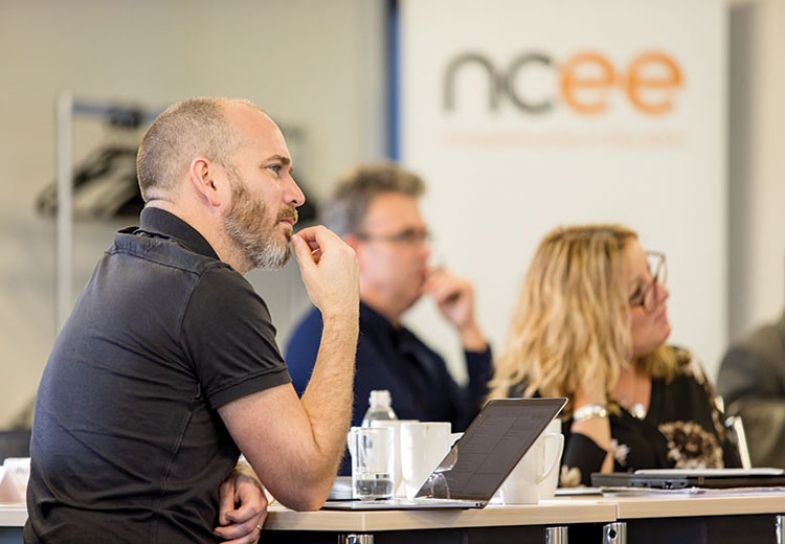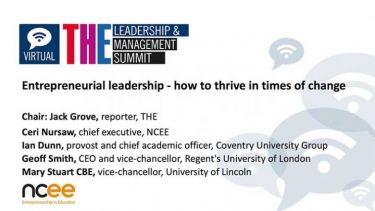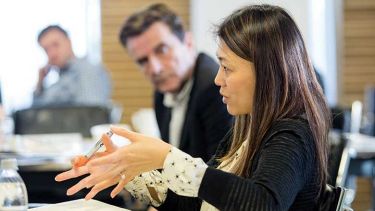
NCEE’s entrepreneurial programme encourages learning and collaboration
With so much going on in the higher education sector, it may seem indulgent to invest in personal leadership development. Challenges lie ahead from Brexit and potential changes to student finance, and institutions are in constant competition to attract students and offer the best university experience. Over the past eight years, the NCEE’s entrepreneurial leadership programme has supported 160 senior academic and professional services leaders to tackle these complex issues.
The structure of the programme, which takes place over three modules, means participants can reflect on their own organisations’ challenges and apply their learning “on the ground”. Professor David Amigoni, pro vice-chancellor (research and enterprise) of Keele University, was among the 2018 cohort. “You can select something that resonates with your day job, so I chose to look at how Keele can build a culture strategy with regional potential. I developed it across the three modules and am now looking at realising it as an aim for the university,” he says.
Meeting with a diverse selection of leaders from different institutions, approaching issues in their own ways, made the course valuable for Professor Amigoni. “It makes you realise the wide variety of institutional identities we have, each with different leadership styles,” he adds.
Ian Dunn, NCEE chair and deputy vice-chancellor of Coventry University, explains that the programme is garnering international attention, too.
“We’re seeing more interest from China, Oman and the wider Middle East, with some governments requesting we open the programme up to their higher education systems,” he says.
This global view adds a further dimension to the insights UK leaders can gain from their peers, particularly with Brexit on the horizon. Mr Dunn adds: “Institutions will need to innovate and be agile, and we’re building influence through entrepreneurial leadership.”
NCEE’s programme also encourages leaders to reflect on how adopting a more entrepreneurial mindset can impact the civic role of their institution closer to home. Mr Dunn recently held meetings with council chief executives, for example, to discuss how to deepen collaboration and help residents make the most of the cutting-edge facilities in its Scarborough and London campuses.
If there’s one aspect of the programme that past delegates value most, it’s the opportunity to network. The list of contributors and speakers includes numerous vice-chancellors and policymakers – and the connections made between those participating are long-lasting. Encountering an issue where they need a fresh eye, the NCEE programme provides them with a buddy network they can call on at any time. Many have visited others’ campuses to see at first-hand how they’re applying their learning.
“It’s changed how I think,” says Professor Jess Power, associate dean for students at Staffordshire Business School. “We’re all in this fast-moving, turbulent environment and it’s about how we turn those problems into opportunities. The connections I made with the others on the course and the mentors were phenomenal.”
The impact this knowledge sharing will have on students will deliver the most benefit, she concludes. “We all work within our disciplines to achieve great things but we need to connect outside of these areas, too. Equipping our students to do the same is essential.”




